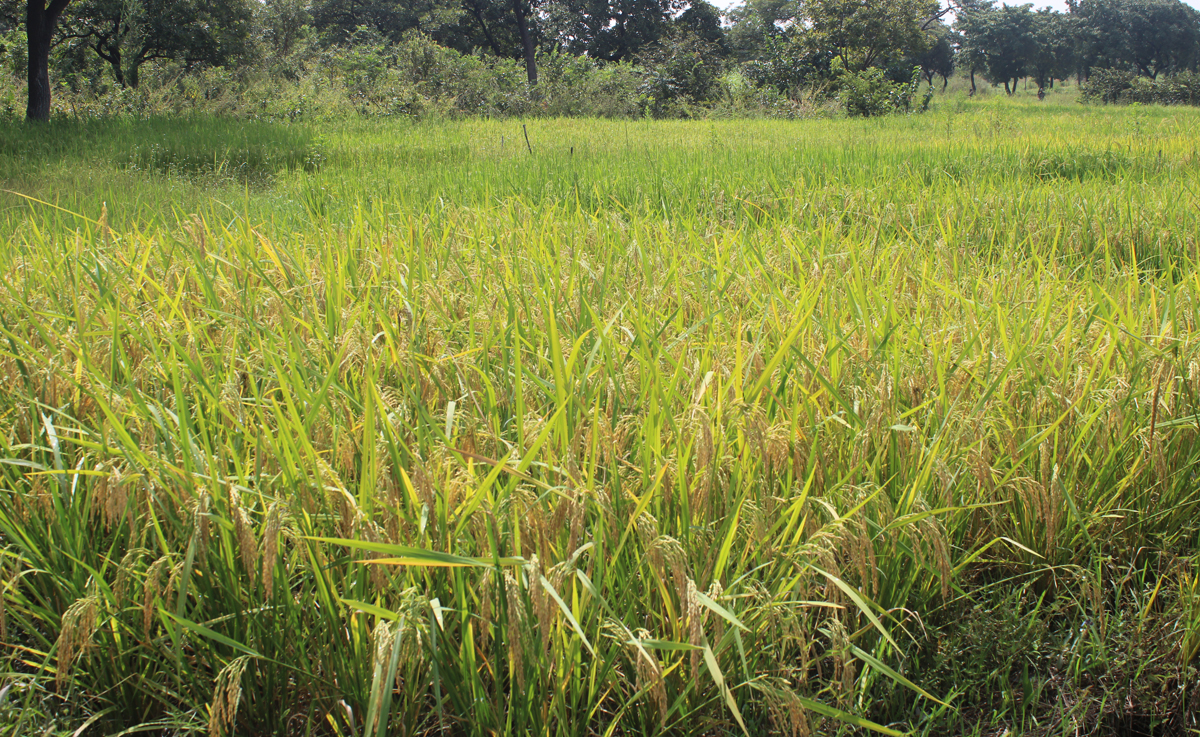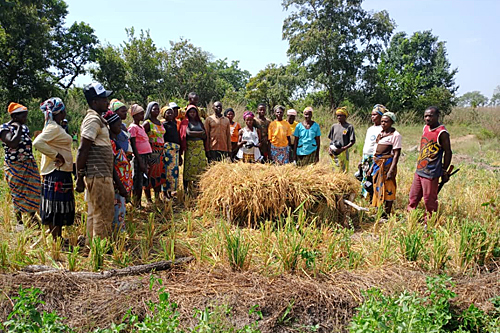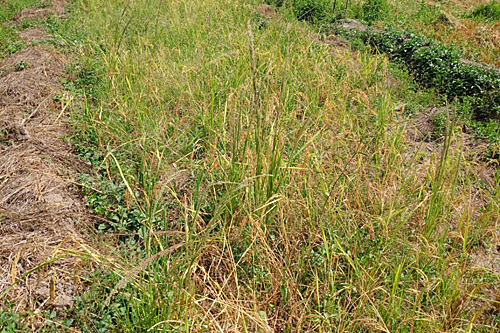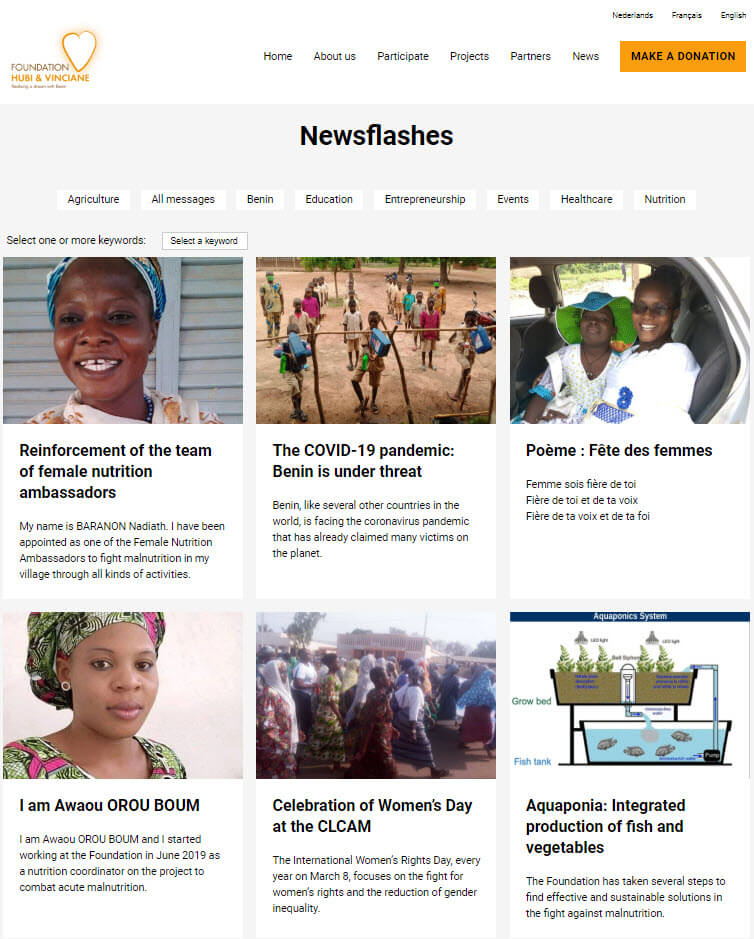Better and better farming with CEP

In a country like Benin, where many people have no means of subsistence other than agriculture, monitoring and adapting farming techniques to optimize harvests systematically is essential.
Figures from Benin’s Institut National de Statistiques et de Démographie (INSTaD) and the Food and Agriculture Organization of the United Nations (FAO) confirm that over 70% of Benin’s population depend on agriculture for their income. The same statistics show that agriculture accounts for over 32% of gross domestic product (GDP). The Hubi & Vinciane Foundation has initiated the development of new, lesser-known production methods with local farmers through the Champs Ecoles Paysans (CEP) to increase agricultural productivity.
Our Foundation’s agronomists marked out a small area of the farmer’s land for the CEP. Within this small area, they apply different techniques to the same crops and share their knowledge and experience with the farmer-owne and other farmers from surrounding plots. They compare not only the harvest itself but also the difficulties and consequences of the techniques applied. In this way, the farmers learn first-hand which methods are the most profitable.
This year, three villages in N’dali have already benefited from the project.
Several rice seeding techniques were tested in the Smart Valley fields (another Foundation project), including direct seeding, broadcast seeding (a farmers’ practice) and transplanting. The results of the new techniques were much better than what the farmers had always applied.
In another village, our advisors experimented with sowing lentils in the RWHs. Here, too, the results were much better than with traditional techniques.
We’ve been experimenting with new pest control methods as part of our vegetable garden project. Using natural processes, our agronomists eliminated over 90% of nematodes and kept crops healthy without pesticides.



